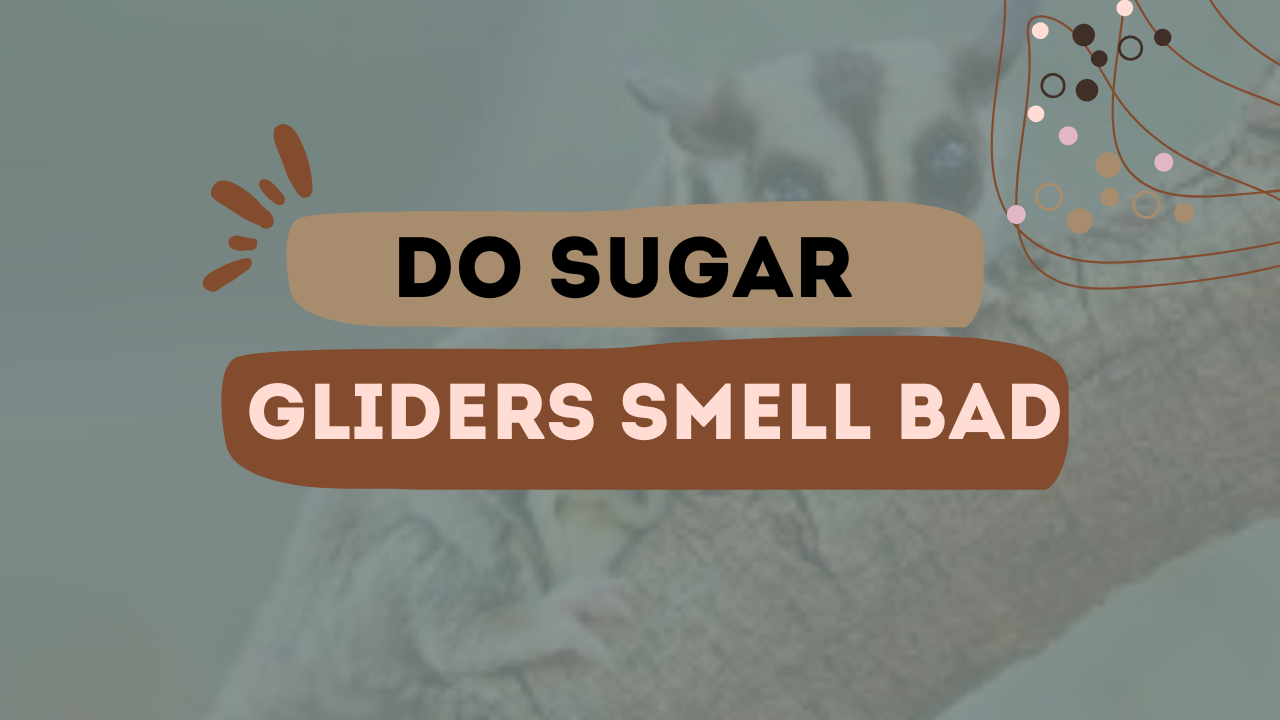I take it that you’re considering purchasing a sugar glider? Like small flying squirrels, these cute little mammals have large, inquisitive eyes and even larger personality. However, one question that may be bothering you (and with good reason) is whether or not sugar gliders have an unpleasant odor. To be honest, when I initially learned about them, I also had this question. They may seem adorable, but who wants a pet that fills the entire space with odors? Rest assured, I have the inside information. In this post, we’ll discuss sugar glider odor in detail, including what’s typical, what isn’t, and how to deal with it if it starts to smell a little… strange. Let’s get started immediately.
What’s the Deal With Sugar Glider Smell?
First things first: although it’s not quite as dramatic as you might think, sugar gliders can smell. The majority of healthy sugar gliders naturally smell musky. It’s obvious, especially if you’re pushing your nose up close, but it’s not horrible. Strange, huh? Some people even claim that it has a somewhat sweet or nutty scent.
The problem is that each glider has a different scent. For instance, males typically smell stronger than females. Their scent glands are primarily to blame for that. In order to claim their territory or entice potential mates, male sugar gliders have small bald patches on their heads and chests that release a perfume. Therefore, be ready for a somewhat stronger scent if you have a male, especially if he is not fixed.
When the Smell Becomes Too Much…
The problem is that not all sugar glider odors are typical. It could be a hint that something is wrong if your young guy (or gal) smells awful, like something killed in their cage.
A few things that can cause sugar gliders to smell are as follows:
Improper cage hygiene: We’re to blame, people. It will smell if you don’t clean the cage on a regular basis. Pee, excrement, and leftover food accumulate quickly.
Poor diet: Their odor is influenced by what they eat. Junky food or too much protein can interfere with their fragrance.
Health problems: Odors can be caused by infections, particularly in the mouth or scent glands. Contact a veterinarian right away if your glider has a fishy or rotten smell.
So yeah, if your sugar glider smells worse than usual, don’t ignore it. Something might be wrong.
Tips to Reduce Sugar Glider Odor
Good news: with a little effort, you can totally manage (and even eliminate) most of the odor that comes from sugar gliders. Here’s what works:
- Clean the cage often—but not too much
Aim for spot cleaning every day and a deeper clean once a week. But don’t go overboard. If you scrub everything too much, your glider might just mark it all over again to “reclaim” it. It’s all about balance. - Neuter the males
If you’re not planning on breeding, neutering your male sugar glider can significantly reduce the musky smell. Plus, it helps with behavioral stuff like marking and aggression. Win-win. - Watch the diet
Feed a well-balanced diet with plenty of fruits, veggies, and calcium. Avoid too much meat or processed stuff. Some people even say feeding raw honey (just a tiny bit!) helps sweeten their smell. Not sure how scientific that is, but hey—worth a try. - Air things out
Put the cage in a well-ventilated room. A fan or air purifier helps a lot too, especially if you have multiple gliders. - Use fleece liners instead of wood shavings
Fleece is washable and doesn’t trap odor like wood bedding can. Just toss it in the wash every few days and you’re good.
Is It a Dealbreaker?
To be honest? It doesn’t smell that horrible. Sugar gliders aren’t all that much worse than other pets, especially tiny ones like dogs, ferrets, or hamsters. The majority of folks who complain about odors either neglected their cleaning or their homework. They do have a scent, but it’s not too strong.
Let’s face it, we also smell. For example, on a hot day, have you ever forgotten to wear deodorant? Let’s give sugar gliders a break since they don’t have that choice.
Final Thoughts
Do sugar gliders have an unpleasant odor? In a nutshell: not really. They do have an inherent scent, and in certain situations, particularly when the male is unneutered or the cage is messy, it can be stronger. However, it is completely manageable with proper care, nutrition, and hygiene.
It’s absolutely not a deal breaker if you don’t mind a little muskiness—I promise you, there’s nothing worst than a smell gym sock. Since sugar gliders are such wonderful little friends with enormous personalities, a slight odor is really a minor inconvenience.
So go ahead and sniff one (well, maybe don’t), but don’t allow the tales about their smell deter you from getting one of these wonderful pets. All you need to do to succeed is to be a responsible glider parent.

